#python language
Text
python - a brief history
In 1989, Guido van Rossum, a Dutch computer scientist, started working on a new programming language that would be easy to learn and use. He named it after Monty Python's Flying Circus, his favorite TV show.
The language quickly gained popularity and a cult following among developers who loved its simplicity and ease of use. Python soon became the language of choice for scientific and academic communities.
As Python's popularity grew, it faced some significant hurdles. In the early days, critics panned the language for being slow and inefficient compared to other programming languages. However, the Python community was undeterred and developed several optimization techniques and libraries to improve performance.
In 2000, Guido van Rossum released Python 2.0, which introduced a number of major new features and improvements, including list comprehensions, a garbage collector, and support for Unicode. This version of the language solidified its position as a powerful and versatile programming language.
Over time, Python faced some new challenges. The release of Python 3.0 in 2008 introduced significant changes that caused compatibility issues with earlier versions of the language. However, the Python community rallied to provide tools and resources to help developers transition to the new version.
Despite these challenges, Python has continued to grow and evolve. Today, it is one of the most popular programming languages in the world, with a vast ecosystem of libraries and tools. Python is used for everything from web development and data analysis to scientific computing and artificial intelligence.
Python's success can be attributed to the passion and dedication of its community, who have worked tirelessly to overcome challenges and make the language accessible to everyone. Guido van Rossum may have created Python, but it is the community that has made it a force to be reckoned with in the world of programming.
#python#history#learn#programming language#programming#computer language#history of#learn python#python programming#computer history#digital technology#developers#developer#info#information#birth of python#python the programming language#guido#rossum#python language#geek#nerd#nerdy#interpreted#interpreted language#fun#computer science#technology
93 notes
·
View notes
Text
How to Install Python on Windows 10
Python is a popular and versatile programming language that you can use for various purposes, such as web development, data analysis, machine learning, and more. In this tutorial, I will show you how to install Python on your Windows 10 computer in a few simple steps.
Step 1: Download the Python installer
You can download the latest version of Python from the official website: https://www.python.org/downloads/. Choose the Windows installer that matches your system architecture (32-bit or 64-bit).
Step 2: Run the Python installer
Once you have downloaded the Python installer, double-click on it to launch it. You will see a window like this:
Make sure to check the box that says “Add Python 3.x to PATH” to enable Python to run from any directory on your computer. Then, click on “Install Now” to start the installation process.
Step 3: Verify the Python installation
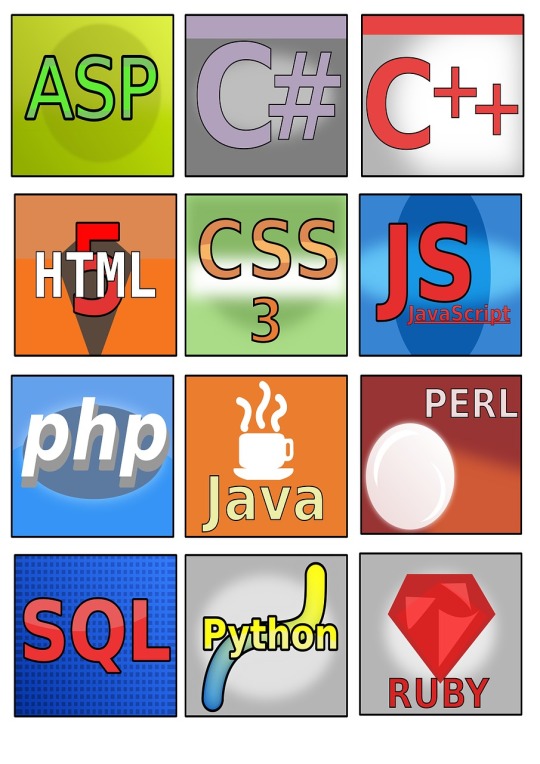
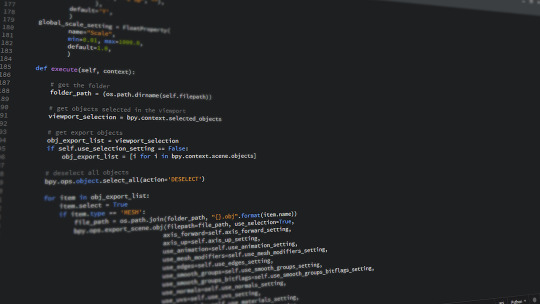
After the installation is complete, you can verify that Python is installed correctly by opening a command prompt and typing:
python --version
You should see the Python version that you installed, like this:
![Python version output]
Congratulations, you have successfully installed Python on your Windows 10 computer! 🎉
Don't forget to follow me @treasuremani
#pythonlearning#python language#software development#software#coding#programming#android app development#html#python#sql#php#css
2 notes
·
View notes
Text
Okay, so I'm really in the start. I'm Investigating. Playing around.
Asked some Internet Friends if they wanna learn with me but No one wants to Join...
So I'm alone here

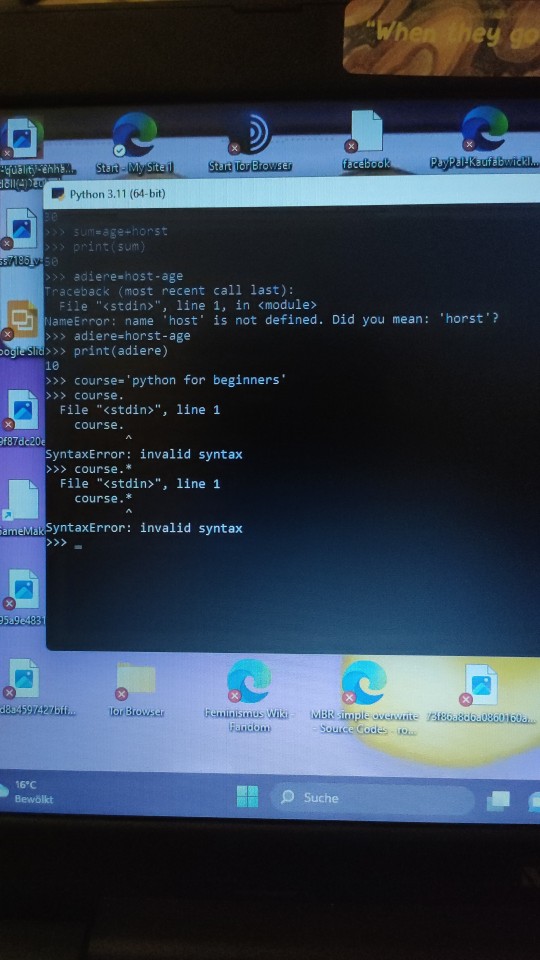
1 note
·
View note
Photo
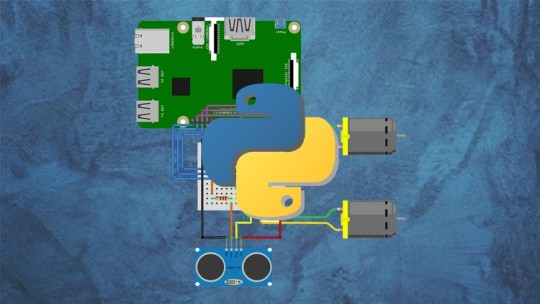
Raspberry Pi, Python, and Internet of Things (IoT) Project ☞ http://learnstartup.net/p/1601kcJL8 #python HksbEGrMt
#python#python tutorial#python language#python full course#python course#learn python#learn python programming#python tutorial for beginners
10 notes
·
View notes
Text
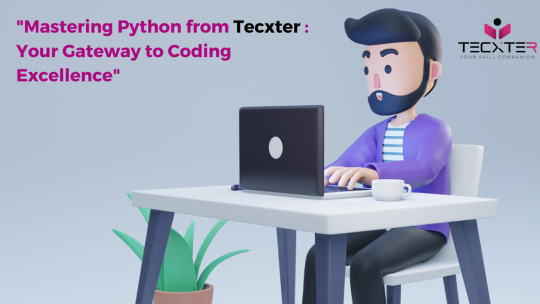
Mastering Python from Tecxter: Unlock Your Coding Potential & Embark on the Path to Excellence
"Mastering Python from Tecxter" is more than just a course; it's an investment in your future. Join us and unlock your coding potential to become a Python programming master! Visit our website to learn more and start your coding journey with Tecxter!
LEARN MORE ABOUT US
#Python#python programming#programming language in python#python language#python for coding#python computer coding#programming python code#Data Science#Web Development#Machine Learning#Artificial Intelligence#Automation#Programming Community#TechTrends#Python Innovation#CodingLife#Developer Community#Python Language#Tech Updates#Learn Python#Programming Languages
0 notes
Link
Python Language: The Best Software Coding Language of the Future
0 notes
Text
Career Opportunities in Python
Numerous companies all across different industries Python for developing websites and software. Along with this Python is also useful for processes such as task automation, data analysis, and data visualization. Being a relatively easy to learn language, numerous non programming professionals have also adopted it such as accountants and scientists. This global use of Python makes it a great…

View On WordPress
0 notes
Text
From Data Zero to Hero: Learn Python Basics Through Everyday Activities

Python is a high-level object-oriented programming language. In current times, Python is widely popular because of its simple syntax and standard libraries. As a result, it has several day-to-day applications which we will see further in this article. Also, Python has empowered the data-driven world. For example, it is increasingly used in data analysis, AI, Machine learning, and so on. A practical approach to learning Python is through everyday activities. It also has Integrated Development Environment (IDE) like Visual Studio Code that simplifies python programming. Following is a list of everyday activities through which the Python learning is simplified, and the data collected can be handled effectively.
Python in Everyday Life:
Grocery Shopping with Python Lists
Preparing a list for grocery shopping can be taxing at times. Through the concept of lists in Python, the grocery shopping ordeal can be simplified. Thus, this data can be better managed by using Python.
Analysing Daily Expenses with Python
Analysing daily expenses is very essential to manage the budget whether for a household or an organization. Learning the concepts of variables and data types in Python and their application in this domain can help efficiently analyse daily expenses. Here too, python aids in managing the daily expenses data.
Automating Repetitive Tasks
Many repetitive tasks like scheduling meetings, backing up data, posting on social media, and downloading videos can be automated using Python. This can save your precious time and energy which can then be applied to other important tasks.
Managing Contact Information
For managing contact information, data structures like dictionaries and tuples can be learned and used. Hence the corresponding data can be well managed.
Analysing Personal Health with Python
Python has standard libraries like NumPy and Matplotlib. These can be used to visualize personal health data. Thus, this can pave the way for revolutionizing the health sector.
Workout Routines
Modules and functions in Python can be used to prepare workout routines.
In short, the magic of Python is unfolding slowly incorporating it into our everyday life. It is a portable and interesting language that is in the process of making our lives easier. Data and Python are somewhat intertwined now. If you are interested in learning Python with a practical approach and building exciting projects, please join us and create with python.
#courses software engineering#program developer course#software development classes#software course#course on software engineering#artificial intelligence#software training institute#software development courses#best software courses#software engineer classes#Python#python programming#programming language in python#python language#python for coding#python computer coding#programming python code#python a programming language#python developer#softwareengineering#dataengineer#PythonTraining#PythonPower
0 notes
Text
Python Proficiency: Unleash Your Potential Online
Dive into the world of programming with our Python Course Online, designed to equip you with essential skills in Python programming language. Start your journey today and become proficient in one of the most versatile languages in the industry.
#python training#python classes#python coding#python language#python course#python programming#neuailabs#futureofai
0 notes
Text

Uncodemy, the premier Top Python Institute in Greater Noida, tailors its program for individuals aspiring to excel in programming. Python, globally recognized in AI and machine learning, opens doors to lucrative career opportunities. The comprehensive course covers Python fundamentals, syntax, and practical applications, accommodating candidates from diverse backgrounds. After completion, participants can pursue roles such as software developers, data scientists, or research analysts, making it a strategic investment for those looking to thrive in the dynamic programming landscape.
#python#python training#python guide#python language#python developers#python course#python programming#python programmer#python institute#python training institute#python training course#python institute in greater noida#top python institute
0 notes
Text
Which Is The Best Python Language Online Course?
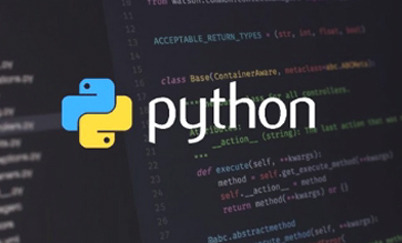
0 notes
Note
Can you code , if yes,what programming languages
I can write codes in Python , and html
1 note
·
View note
Text
Programming Made Simple: A Beginner's Guide to Python Proficiency
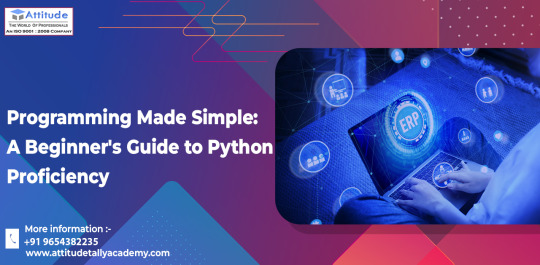
Introduction
Embarking on the exhilarating expedition into the vast landscape of programming languages, Python emerges as the perfect companion for beginners, owing to its unparalleled readability, simplicity, and versatility. If you find yourself at the inception of your programming odyssey, this blog serves as your guiding star, navigating you through the enthralling universe of Python. Within this beginner's manual, we'll unravel the intricacies of Python programming, providing you with the tools to grasp the fundamentals and lay a robust foundation for your coding escapades.
Decoding Python's Allure
The allure of Python for beginners lies in its user-friendly syntax, akin to plain English, facilitating code readability and composition. Whether your interests lie in web development, data science, artificial intelligence, or automation, Python's diverse applications position it as the ideal language for aspiring programmers.
Initiating the Journey: Installation and Configuration
Before delving into the realms of Python programming, the first step is installing Python on your machine. The official Python website offers clear, step-by-step instructions for installation across various operating systems. Once installed, you can plunge into the interactive mode, executing code line by line and witnessing the outcomes in real-time.
Python Primer: Syntax and Structure
Just like any language, Python comes with its own set of keywords and syntax rules. A solid grasp of these fundamentals is essential for crafting effective code. Let's delve into some key Python concepts:
Variables: Python allows you to store data in variables through simple assignments. For instance, x = 5 assigns the value 5 to the variable x.
Data Types: Python boasts support for diverse data types, including integers, floats, strings, and booleans. Proficiency in manipulating these types is fundamental for crafting robust programs.
Control Flow: Essential for dictating the program's flow, conditional statements (if, elif, else) and loops (for, while) empower you to make decisions and iterate tasks based on specific conditions.
Python's Arsenal: Libraries and Modules
A cornerstone of Python's strength lies in its expansive library ecosystem. Libraries such as NumPy for numerical computing, Pandas for data manipulation, and Flask for web development simplify intricate tasks, allowing you to leverage existing solutions and build upon them.
Python Projects for Skill Refinement
To cement your understanding of Python, engaging in small projects is key. Whether it's crafting a simple calculator, developing a web scraper, or creating a basic game, hands-on projects offer invaluable experience and reinforce the concepts you've acquired.
Culmination and Commencement
In this introductory guide, we've navigated the foundational aspects of Python programming, encompassing installation procedures, basic syntax, and the significance of libraries and hands-on projects. By concentrating on key concepts and tailoring Python for beginners, our aim is to demystify the programming world, empowering you to embark on your coding journey with confidence.
Keep in mind that proficiency in Python is a result of continuous practice and exploration. So, ignite your preferred code editor, embrace the elegance of Python, and let your programming expedition commence!
0 notes
Photo
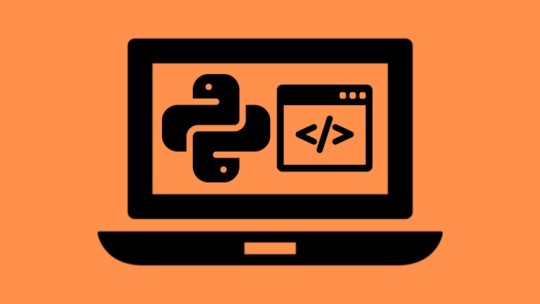
Python For Ethical Hacking: Develop Pentesting Tools ☞ http://learnstartup.net/p/kaSRY3Eb9 #python r1FbkDvUzK
#python#python tutorial#python language#python full course#python course#learn python#learn python programming#python tutorial for beginners
9 notes
·
View notes
Text
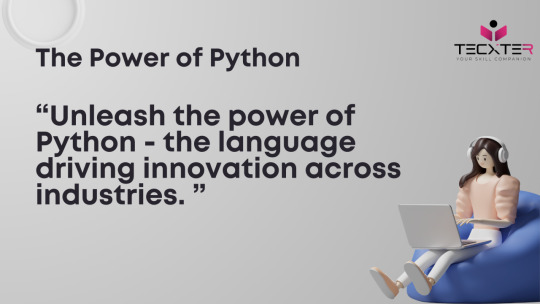
Unleash the Power of Python from Tecxter - The Language Driving Innovation Across Industries
Python, the versatile programming language, has become the driving force behind innovation in various industries. Its simplicity, readability, and vast library support make it a preferred choice for developers worldwide. Tecxter, a pioneer in Python innovation, has taken the lead in leveraging Python to create cutting-edge solutions that transcend industry boundaries.
LEARN MORE ABOUT US
#Python#python programming#programming language in python#python language#python for coding#python computer coding#programming python code#Data Science#Web Development#Machine Learning#Artificial Intelligence#Automation#Programming Community#TechTrends#Python Innovation#CodingLife#Developer Community#Python Language#Tech Updates#Learn Python#Programming Languages
0 notes
